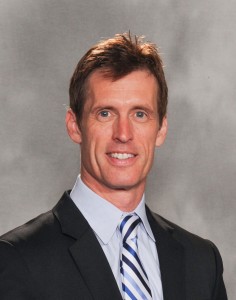KK: The whole specialty owes a debt of gratitude and thanks to physicians like Harry, John, and Richard. If they had not accomplished what they had with yesterday’s emergency medicine, Zach and today’s emergency physicians would not be able to build a more perfect future for tomorrow’s emergency medicine.
Explore This Issue
ACEP Now: Vol 35 – No 12 – December 2016





5 Responses to “Emergency Medicine Founders Discuss Origins of the Specialty, How It’s Changed, and What the Future Holds”
December 18, 2016
Cindy Pearsall Sussman MD FCEPI was sorry to not see a credit given to Dr David Wagner, the real “grandfather of Emergency Medicine” in your article. Dr Wagner was a general surgeon at the Medical College of Pennsylvania in Philadelphia and noted the immense need for an Emergency Medicine residency program. His was the first, and paved the way for many more to come. As a graduate of that program, I am proud to say that we were well prepared for just about anything that came our way. Dr Wagner deserves credit for having the foresight and energy to get the field on its feet.
December 18, 2016
Cindy Pearsall Sussman MD FCEPCorrection- Dr Wagner was a pediatric surgeon
December 18, 2016
MarianKevin,
Thank you for an insightful article regrading the history of emergency medicine and where we are headed.
I find it ironic that there are two articles in this edition of ACEP eNow discussing diversity in emergency medicine, however, your interview panel lacked diversity. I am certain that this was not intentional, but it certainly highlights the unawareness at times of this particular issue.
December 19, 2016
Kevin Waninger MD FACEPEven more important, Dr. David Wagner was a great role model and a really nice man. I am a better doctor, and even more important, a better colleague, friend and father, because of my interaction with Dr. Wagner.
November 22, 2018
Kathleen Nakfoor, Ed.D, MBA, MSIS, RNI had the privilege of working with Dr. John Wiegenstein, MD and Dr. Eugene Nakfoor, MD from 1970 to 1975. I was told “history is being made in this emergency room” and know this to be a fact. I recall working with Dr. Wiegenstein the nights before he head off, yet, to another meeting to battle for EM as a speciality. He entertained us with stories of his less than impressive luggage when checked into the presidential suite. I was well aquatinted with stories of progress being made in EM.
What has been overshadowed by the enormity of ACEP formation and EM becoming a specialty, are the historical changes that were made in emergency department management. I recall Eugene Nakfoor, MD, also a founding ACEP member, telling me stories of the fact no one knew how to bill for services, such a practice was unprecedented. He garnered “departmental status” in which he controlled all hiring and firing of the entire staff.. He and the nurses developed the original scribe system, not the one in existence today. There has never been such a well managed emergency department using the scribe; actually a pivotal individual with whom the department was organized.